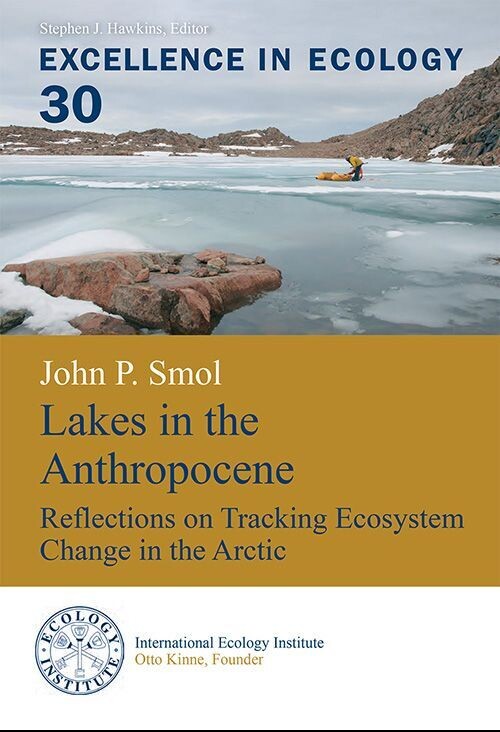Lakes in the Anthropocene
Lakes in the Anthropocene: Reflections on Tracking Ecosystem Change in the Arctic
About the author
John P. Smol
Department of Biology, Queen’s University, Kingston, Ontario, Canada
Recipient of the International Ecology Institute (ECI) Prize 2015 in freshwater ecology
A Distinguished University Professor of biology and environmental studies at Queen’s University (Kingston, Ontario) and holder of the Canada Research Chair in Environmental Change (2001–2021), John P. Smol founded and co-directs the Paleoecological Environmental Assessment and Research Lab (PEARL), a group of ~40 students and other scientists dedicated to the study of long-term global environmental change, and especially as it relates to lake ecosystems. Smol was the founding Editor of the Journal of Paleolimnology (1987-2007) and is current Editor of Environmental Reviews (2004 – present). Having authored over 670 peer-reviewed publications and 23 books, he is recipient of over 70 research and teaching awards including the 2004 NSERC Herzberg Gold Medal as Canada’s top scientist or engineer, named an Officer of the Order of Canada, and Fellow the Royal Society (London). From 2019 to 2022, he served as President of the Academy of Science, Royal Society of Canada.
About the book
In a book that is part memoir and part textbook, John Smol reflects on his 35+ years of aquatic research in the Arctic. Working primarily on the limnology and environmental histories of lakes and ponds, he emphasizes the need for using appropriate spatial and temporal scales to understand the effects of natural and anthropogenic stressors. An overriding theme is the critical role that accelerated climate change plays as a “threat multiplier”. The book pays homage to some of the pioneers of Arctic limnology using archival photographs before summarizing a diverse array of paleoenvironmental studies that he and his colleagues have led. Highlighted research includes collaborations with Indigenous knowledge holders and archeologists, tracking past ocean flooding events, the repercussions of permafrost thaw, the effects of pollutants from both local and distant sources, as well as tracking long-term changes in salmon and bird populations. Smol emphasizes the importance of using diverse sources of information, the role that personal relationships can play in successful collaborative programs, and issues linked to environmental justice for Northern peoples.
File format:
epub
Printed edition of the book
If you are interested in a printed edition of the book, please order here ( Lakes in the Anthropocene, Print version ).

